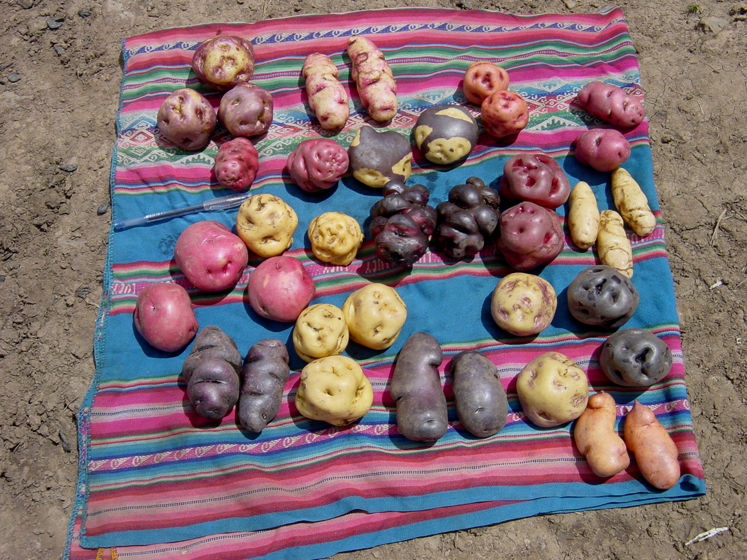

Le parc de la pomme de terre est un territoire du patrimoine bioculturel, conçu et géré collectivement par les communautés qui vivent autour de lui. Créé en 2002 par six communautés quechua (dont cinq sont encore actives), le parc lui-même compte plus de 650 variétés selon la classification scientifique occidentale (ou plus de 1 300 selon la classification traditionnelle), ainsi que d'autres cultures andines. Il existe 18 variétés de pommes de terre résistantes à la sécheresse et au gel, ainsi qu'une variété tolérante aux virus. Le parc fait donc office de réserve génétique et de dépôt d'outils de résistance au changement climatique.
Le parc est géré sur le modèle du système traditionnel de l'aylluvalue, qui vise à protéger l'indivisibilité et l'interconnexion de l'agrobiodiversité au sein du parc. L'organe directeur, l'Association des communautés du parc de la pomme de terre, détient le titre foncier communal pour le territoire. Ce sont les communautés elles-mêmes qui ont défini la structure et le fonctionnement de l'association, avec le soutien de l'ANDES, et elle comprend des représentants des dirigeants de chacune des cinq communautés qui couvrent le parc. L'association permet aux communautés de conclure des accords juridiques et de négocier efficacement en tant que groupe en ce qui concerne les innovations ou les micro-entreprises associées au parc, telles que les produits de beauté ou les produits alimentaires.
- Un accord de rapatriement conclu avec le Centre international de la pomme de terre a permis de restituer à la région 410 variétés de pommes de terre adaptées aux conditions locales.
- La mise en commun des terres facilite l'expérimentation, ce qui est d'autant plus important que le changement climatique modifie les conditions de culture, par exemple en repoussant la ligne de plantation inférieure pour les pommes de terre, et que les agriculteurs doivent s'adapter.
- Pour soutenir le parc, un groupe de gardiens des semences a été créé et formé à la production de semences botaniques, aux transects et à la multiplication.
- Le recours à la recherche-action participative pour soutenir la conception et la gestion du parc a été essentiel à son succès et a facilité le développement, par exemple, d'accords équitables de partage des bénéfices, fondés sur le droit coutumier, qui sous-tendent l'innovation bioculturelle associée au parc.
- En restaurant et en préservant le patrimoine bioculturel de cette région, le parc de la pomme de terre réduit la vulnérabilité aux phénomènes météorologiques défavorables et aux maladies, favorisant ainsi la résilience face aux défis du changement climatique. Le soutien à l'agrobiodiversité locale contribue également au maintien des services écosystémiques.